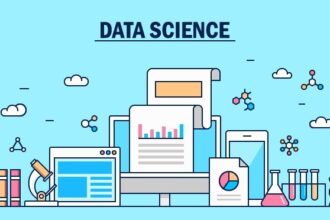Could the great classical music composer Ludwig Beethoven successfully implement analytics-based enterprise performance management (EPM) in an organization?
Could the great classical music composer Ludwig Beethoven successfully implement analytics-based enterprise performance management (EPM) in an organization?
We will get to Beethoven in a minute. First, what do I mean by analytics-based enterprise performance management? I mean all of its integrated managerial methodologies. Examples are a strategy map and its companion balanced scorecard, dashboards, customer profitability and value management reporting, risk management, and driver-based financial rolling forecasts – with each one embedded with business analytics of all flavors such as segmentation and correlation analysis, and especially predictive analytics.
I was educated as an industrial engineer, and I do not view myself as a scholar of the performing arts, literature, or classical music. However I have always been a careful observer and listener of what I see and hear. As I continuously witness the success and failure of attempts to fully implement various enterprise performance management methodologies, I compare them with Beethoven. Why?
During Beethoven’s “middle period” of music composition he was attracted to heroes and heroic efforts. This was the time period around 1810 that he composed some of his most popularly recognized pieces such as Eroica (his Third Symphony), Egmont (from Goethe, and his Op. 84), and “Emperor” (piano concerto no. 5 in E-flat, Op. 73). What is common about Beethoven’s interest in heroics and champion-like project managers who take on the challenge to implement and integrate EPM’s methodologies? It is these three heroic phases: crisis, struggle, and triumph.
Crisis
The initiation of an EPM project, such as developing a balanced scorecard or a risk management system, may not result from a crisis. But you could liken usually quickly emerging organizational interest and eventual need in such a methodology to being a crisis situation. The spark typically occurs when an executive (or a champion or coalition of concerned managers) realizes disturbing deficiencies.
An example of these sparks is when employees have little or no clue as to what the executive team’s strategy is. Another example is when an unexpected risk occurs. Performance measures are too summarized, too late, and have little explanatory value to what caused their result. There are other similar types of deficiencies I could describe, but the point here is the crisis moment emerges when some motivated managers start asking, “How long do we want to perpetuate operating this way and making decisions with no or flawed and misleading data, measures, and financial reporting?”
This is when, in my opinion, Beethoven is at his best. It begins with the first of his four orchestral movements. The music starts with a single note or a few brief chords or with a melodramatic song giving the feel of a thunderstorm or being lost in a blinding snow storm.
Struggle
The next stage of heroics in Beethoven’s works is the struggle. How do we get started? What is the road map? How do we get buy-in, both from executives at the top and co-workers and employees at the bottom? How do we get funding? How do we select the correct key performance indicators (KPIs)? How do we construct an activity-based cost assignment model? How many activities should we divide our processes into? Where do we get all the input data to feed our systems? Do we even have the data? If we have the data, are there quality and integrity problems with it? Is the data scattered about in disconnected and disparate data sources?
Life and work can be a struggle.
How did Beethoven compose his music to deal with this phase in his second and third movements? Sometimes moody. Sometimes sad.
Triumph
Not everyone wins. It is so tragic to me when during my international travels for SAS that I visit an organization that initiated and even completed an analytics-based EPM system, like activity-based costing; and then they abandoned it. An executive pulled the plug on it. They may have concluded it is not worth the administrative effort to collect, calculate, and report the information (meaning someone excessively over-engineered the system and made it unnecessarily complex). Alternatively the methodology may be something a new executive does not understand.
But you can triumph and win.
Beethoven provides us with the thrill of triumph in his fourth and last movement. The decibels grow louder. The chords are crisper. At this point you want to march with your feet to his music.
What are critical success factors to implement analytics-based EPM?
What does it take to triumph in successfully implementing a performance management framework of methodologies? A few tips. Do not over-plan and under-execute. Analysis paralysis or brain-freeze. Just get going. Make mistakes early and often, to learn from, and not later when it is costly to make changes. Also, organizations often under-estimate the magnitude of peoples’ resistance to change. They need for behavioral change management.
So, how successful would Beethoven have been implementing analytics-based EPM? Read my article, Beethoven’s Eroica Effect and Performance Management, and you will know my answer.






